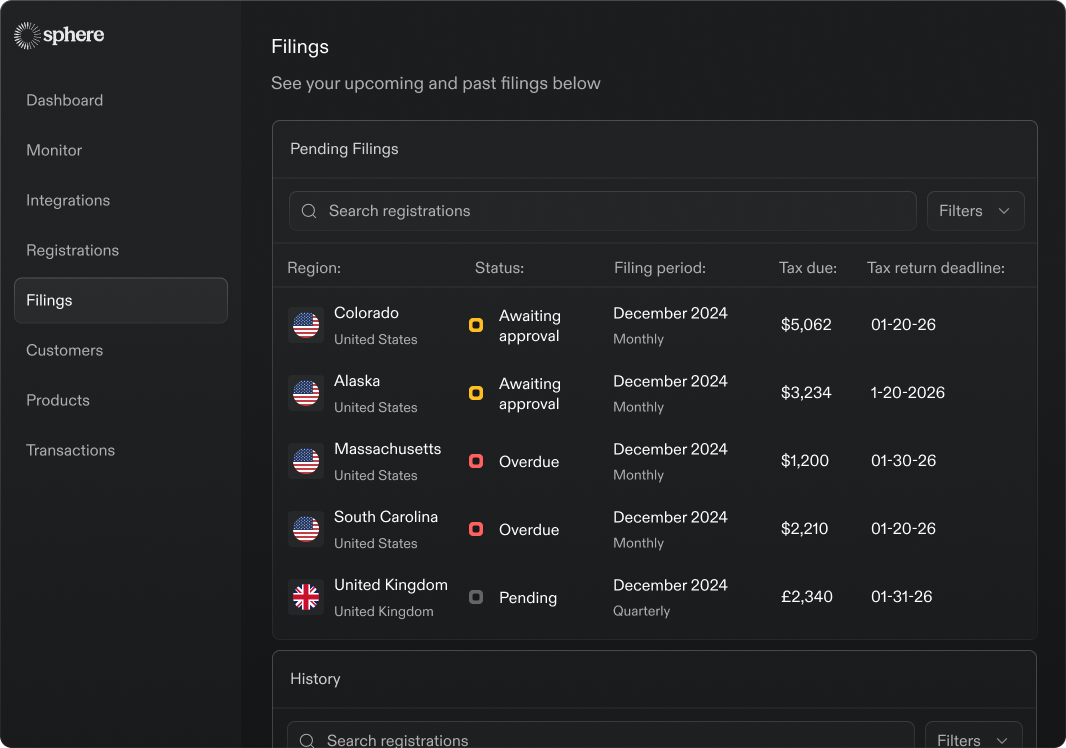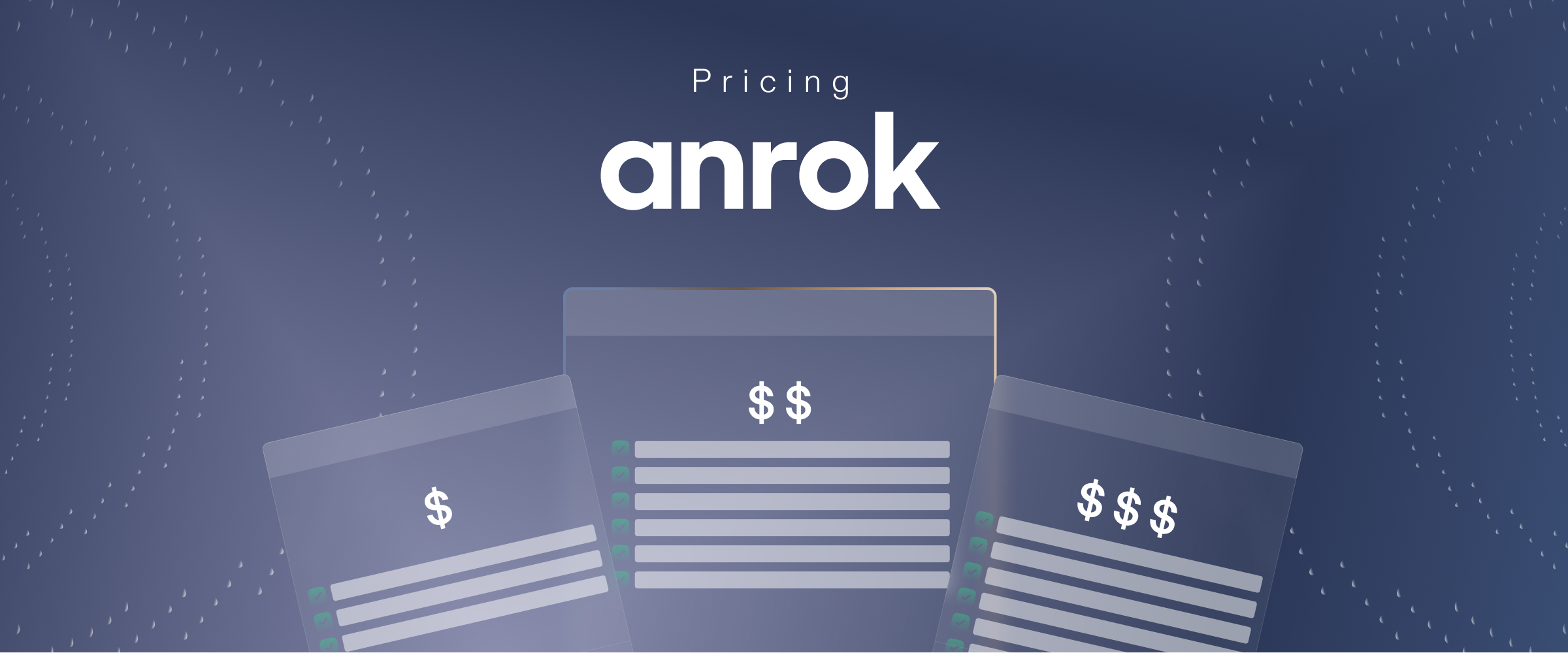.png)
Not so very long ago, if you told your mother you wanted to start a SaaS business, she’d probably send you to your room. But as of 2024, the Software as a Service (SaaS) industry was valued at $266 billion USD and is only gaining steam.
But with great size comes great regulatory scrutiny. Especially when it comes to US sales tax. This indirect tax, once only charged on tangible goods like Stanley Cups and beard oil, is now digital, too. And the sweeping gaze of the sales tax auditor has recently fallen on non-compliant SaaS businesses.
The bad news is that navigating US sales tax isn’t intuitive, especially on non-tangible goods like SaaS products. We talk to business owners every day who don’t realize they have to collect sales tax or who are bogged down in conflicting instructions on how and when to comply. This can lead to the worst decision: putting sales tax off until the auditor finds you first.
The good news is that with a little strategy, handling sales tax in your SaaS business will become just another item on your to-do list, like paying payroll tax or planning the annual retreat, rather than a looming existential threat.
Here’s what you need to know.
Is SaaS Taxable in the US?
Understanding US Sales Tax Law
There’s no nationwide sales tax in the United States. Instead, sales tax laws are entirely up to individual states. Four friendly states don’t have a sales tax at all. But that just means that forty-six, plus Washington DC, all do. And each state, within constitutional limits, gets to set its own sales tax rates and make its own rules and regulations.
Sales tax in the US is just what it says on the tin: a tax paid at the point of sale. Merchants, including SaaS businesses, charge sales tax to their customers at the point of sale and then remit the tax periodically back to the state.
Sales tax makes up a large percentage of many state budgets, and lawmakers are eager to fill their coffers. States were initially slow to adapt when business went digital—remember when software meant physical CDs purchased from now-extinct electronics stores? But they've caught up to the digital revolution, updating their tax laws to capture revenue from virtual transactions, including your SaaS offerings.
How States Classify SaaS for Tax Purposes
States don’t agree on how to tax SaaS products. About half the states either have taken no position or concluded that SaaS isn’t taxable. Though the states have taken no stand change from time to time. As recently as January 1, 2025, Louisiana ruled that digital products, including SaaS, are subject to sales tax.
The ones who do consider SaaS taxable take different approaches. Some consider SaaS transactions taxable just like any other transaction.
Others consider SaaS taxable if the sale directly translates to a tangible item (like an e-book), or if there is a downloadable component to the transaction.
A handful of states, like Iowa and Ohio, only consider SaaS taxable if sold for either business or consumer use. (The bad news there is that states don’t agree which use should be taxable).
And some tax SaaS at a reduced rate or only partially taxed, like Texas’s confusing “data processing services” tax, which has been ruled to apply to SaaS. (See table below.)
SaaS Sales Tax by State – Where It’s Taxable and Where It’s Exempt
Here’s a list of how states currently tax SaaS products.
Disclaimer: Note that this table was accurate as of April 2025 but sales tax rules and laws are subject to change.
What This Means for SaaS Businesses
The rules about SaaS and sales are confusing, and enough to make you close the browser tab and put off sales tax until it makes more sense. Fortunately, Sphere is here to help with automated, AI-enabled sales tax management.
Understanding Nexus Requirements for SaaS Businesses
What Is Nexus?
Nexus is Latin for “to bind or connect.” A company with sales tax nexus in a state has a close enough tie to that state that the state is justified in requiring your business to collect sales tax.
Business activities that create nexus vary by state, but are generally:
- Physical presence- you have an office, home office, store, warehouse, employee, contractor or other physical connection to the state
- Inventory – storing inventory in a state, even if you use a 3rd party to manage that inventory
- Click-thru nexus - Using 3rd party affiliates in a state to send customers to your business
- Temporary nexus - Occasionally doing business in a state, such as selling SaaS products at a tradeshow
- Economic nexus - you exceed a certain amount of sales or transactions from buyers in a state
The concepts of physical and economic nexus tend to trip SaaS stakeholders up, especially when Nevada comes calling for sales tax and you had no idea you even had an obligation to collect. Let’s take a look at the difference.
Physical Nexus vs. Economic Nexus
Physical nexus is fairly easy to comprehend. You live or do business in a state, you need to comply with the tax laws of that state.
Economic nexus is a little trickier. Due to the 2018 South Dakota v. Wayfair Supreme Court decision, states are allowed to require business–generally online businesses–that exceed a certain sales or transactions threshold to collect sales tax from buyers in the state. The threshold is usually $100,000 in sales or 200 transactions, though they–say it with me–vary by state.
Why online businesses? Every state with a sales tax now has economic nexus requirements. These laws were originally designed to stop e-commerce giants like Amazon and the titular Wayfair from making large numbers of sales to buyers in a state without also paying their toll to the state’s coffers. To states, this closed a loophole where a business with no physical presence in the state could get away with selling “tax free.”
How SaaS Companies Should Prepare
As a SaaS business, it's vital to know which business activities create nexus and where you are exposed. The location of your employees, contractors, servers, and even your customers can determine whether you have an obligation to collect and remit sales tax.
Steps to Ensure SaaS Sales Tax Compliance
Did you know sales tax debt doesn’t discharge with bankruptcy?
Be prepared by doing the following:
- Know your nexus exposure – Where do you have nexus and how long have you had nexus in those states?
- Register for a sales tax permit in your nexus states - it’s unlawful to begin collecting sales tax without registration
- Set up sales tax collection – if you use more than one digital payment solution, make sure you set up sales tax collection on all of them.
- Automate sales tax filing and remittance – States will require you to file and remit sales tax monthly, quarterly or annually. Automate so you can stay on task.
What to Do If You Haven't Collected Sales Tax in a State
This is incredibly common. During the manic time of starting up a new business, dreaded sales tax compliance can fall by the wayside. Unfortunately, states also aren’t especially forgiving when it comes to the “I didn’t know I had to!” defense.
If you’re reading this right now with a sinking feeling, you have options. This includes a “voluntary disclosure agreement” (VDA) where a sales tax expert helps you anonymously come clean to the state and negotiate your liability.
Even if you’re just getting started or if you’ve been in business without collecting sales tax for years, it’s vital to get sales tax straight right now.
Choosing the Right Option for Your Business
Sales tax is nitpicky, time-consuming and involves collating large amounts of data. Which makes it the perfect task for AI automation.
How to Automate SaaS Sales Tax Compliance
Benefits of Automation
There are more than 14,000 sales tax jurisdictions in the United States, each with their own rate. As a SaaS business, you’re required to collect sales tax at your buyer’s home rate–and they could live in any one of those 14,000 jurisdictions.
Further, if you sell multiple products, you may be subject to different sales tax rules, even in the same state.
Last but not least, every state’s sales tax filing is different, with most requiring that you break down sales tax collected by jurisdiction.
Sphere, which is an AI-first company, can handle this complexity, no calculator or spreadsheet required.
How Sphere Automates Compliance With AI
.png)
- Monitoring - Sphere alerts you to states where you have current or impending sales tax nexus.
- Registration - Sphere handles registration, which varies from state to state.
- Calculation & collection - No more need to determine the right rates in 14,000 sales tax jurisdictions. Sphere has it covered.
- Filing & remittance – File sales tax returns and pay the relevant tax authorities, no penalties, no delay.
- Global coverage – Ready to move beyond the US? Sphere also handles indirect tax like VAT or GST beyond US borders. The solution grows with you!
The Bottom Line: Sales Tax Compliance Doesn't Have to Be a Burden
Sales tax has many moving parts. But once you’ve set up a sales tax system it becomes just another boring-but-necessary business administrative task. Let Sphere automate it right off your plate.
Disclaimer: This article is for informational purposes only and should not be construed as legal or tax advice. Tax laws and regulations concerning SaaS products vary widely by jurisdiction and change frequently. Consult with a qualified tax professional or attorney regarding your specific circumstances before making business decisions based on sales tax requirements.








.png)

.png)







